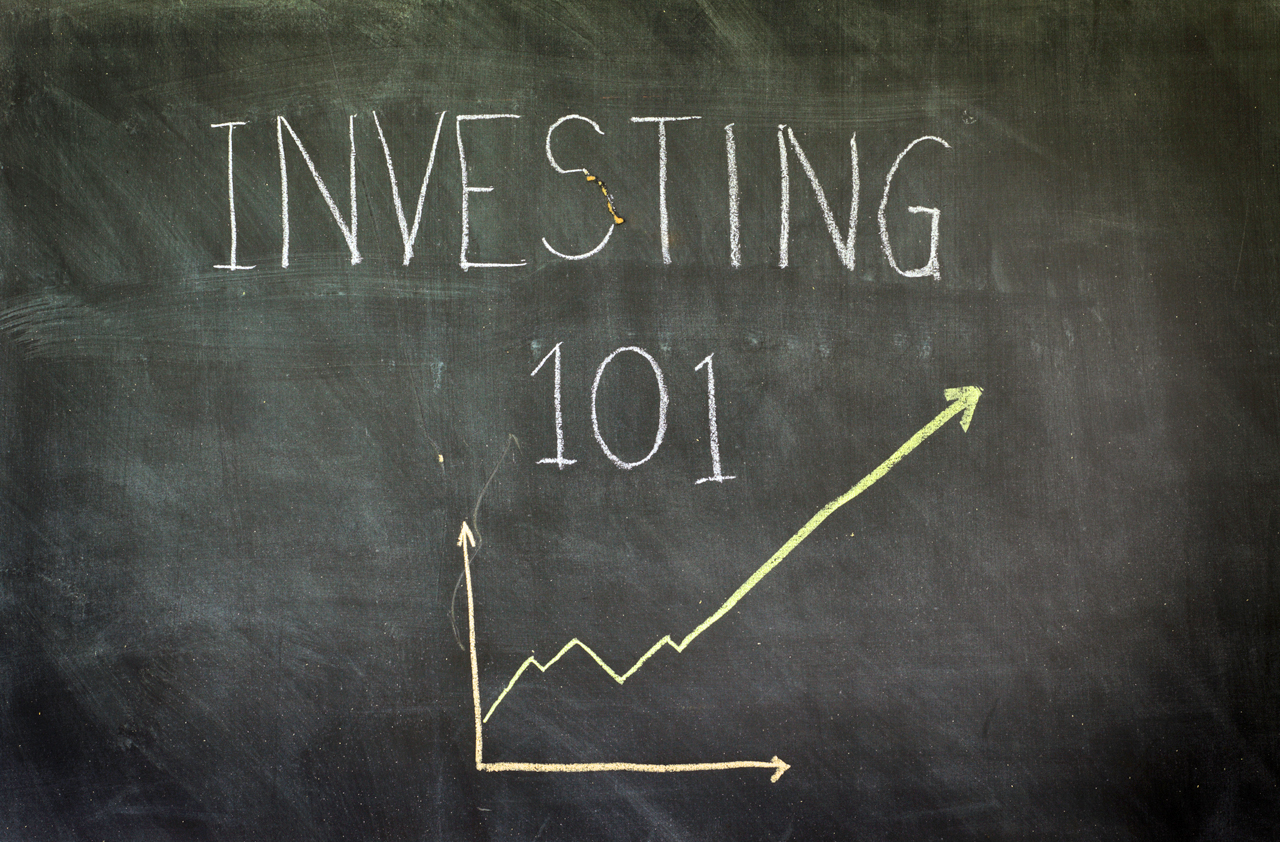Your 2018 New Year’s Resolution: Learn How to Invest
You work hard. Make your money work hard, too.


Profit and prosper with the best of Kiplinger's advice on investing, taxes, retirement, personal finance and much more. Delivered daily. Enter your email in the box and click Sign Me Up.
You are now subscribed
Your newsletter sign-up was successful
Want to add more newsletters?

Delivered daily
Kiplinger Today
Profit and prosper with the best of Kiplinger's advice on investing, taxes, retirement, personal finance and much more delivered daily. Smart money moves start here.

Sent five days a week
Kiplinger A Step Ahead
Get practical help to make better financial decisions in your everyday life, from spending to savings on top deals.

Delivered daily
Kiplinger Closing Bell
Get today's biggest financial and investing headlines delivered to your inbox every day the U.S. stock market is open.

Sent twice a week
Kiplinger Adviser Intel
Financial pros across the country share best practices and fresh tactics to preserve and grow your wealth.

Delivered weekly
Kiplinger Tax Tips
Trim your federal and state tax bills with practical tax-planning and tax-cutting strategies.

Sent twice a week
Kiplinger Retirement Tips
Your twice-a-week guide to planning and enjoying a financially secure and richly rewarding retirement

Sent bimonthly.
Kiplinger Adviser Angle
Insights for advisers, wealth managers and other financial professionals.

Sent twice a week
Kiplinger Investing Weekly
Your twice-a-week roundup of promising stocks, funds, companies and industries you should consider, ones you should avoid, and why.

Sent weekly for six weeks
Kiplinger Invest for Retirement
Your step-by-step six-part series on how to invest for retirement, from devising a successful strategy to exactly which investments to choose.
No matter what the financial or economic climate, investing is an essential way to grow your money for needs you will have down the road. Thus, if you don’t already know how to invest, your 2018 New Year’s resolution is a no-brainer: Learn how.
It’s easier – and more important – than you think. In fact, if you work for a company, you may already be investing in your 401(k) retirement plan. Even if you work for yourself, though, you have a wealth of investment opportunities.
And it’s never too early or too late to begin.
From just $107.88 $24.99 for Kiplinger Personal Finance
Become a smarter, better informed investor. Subscribe from just $107.88 $24.99, plus get up to 4 Special Issues

Sign up for Kiplinger’s Free Newsletters
Profit and prosper with the best of expert advice on investing, taxes, retirement, personal finance and more - straight to your e-mail.
Profit and prosper with the best of expert advice - straight to your e-mail.
Why Should You Invest?
You have financial goals, such as a buying a new house, funding college or getting ready for retirement. Well, your money can grow to help you meet those goals.
Investing also is a way to get ahead of inflation. Over time, your savings can lose purchasing power as the prices for things you want and need move higher. Even when inflation is very low, as it is today, it still works against you. Eventually, higher inflation may return, and you need to be prepared.
That’s what many people don’t understand. By refusing to invest in something that at least keeps pace with inflation, they are essentially losing money. Investing has historically provided a way to outpace inflation and grow your wealth.
As you learn how to invest, you'll discover the best part is how many ways there are to grow your money. Stocks and mutual funds are the most common investments, but they do entail some risk. There are more conservative ways to invest, such as CDs, annuities, bonds and even money market funds that pay you a regular income over time. On the other end of the risk spectrum, there are speculative investments such as cryptocurrencies and fine art that could explode in value … or blow up in your face.
How to Start Investing
The first practical step is to open a brokerage account. Think of it as a store where you can buy and sell stocks, bonds, mutual funds, exchange-traded funds (ETFs) and other investments. Opening an account is also easy and you can do it online. Most brokerage companies also will be happy to help you over the phone. And some may operate branch offices near you where you can talk face-to-face with an investing professional.
Another option is a retirement account such as an Individual Retirement Account (IRA) or Roth IRA. These allow you to buy stocks and funds, just like a brokerage, but have different taxation rules.
Once your account is open, you need to fund it. That can be as easy as sending a check. Most companies also will allow you to set up money transfers direct from your bank. All it takes is filling out a form.
You do not need large sums of money to start investing. All you really need in your account is enough money to cover whatever investment you plan to buy. You can add more at any time when you want to build your portfolio.
Once you get your account set up and funded, it’s time to move on to the next step – finding the right investment to buy.
Basic Investment Types
First, a few quick terms:
- Stock: A share in the ownership of a company that often (but not always) includes voting rights that affect some corporate issues.
- Bond: Debt issued by some entity, such as a government or corporation, that requires the issuer to eventually return the original amount of the loan, as well as make periodic interest payments.
- Mutual fund: A fund that represents a pool of money invested in several securities, such as stocks and bonds. They can be used to invest in broad market indices, or more targeted approaches such as geographical areas and industrial sectors.
Stocks, stock mutual funds, bonds and bond mutual funds make up the majority of investment portfolios. ETFs – which combine the diversification of mutual funds with the ease of buying and selling individual issues – also are in this category.
Stocks naturally rise over time because the companies behind them work to increase their own profits. While they are subject to short-term swings and volatility, if you have a long-term investment horizon, then stocks, as well as stock mutual funds and ETFs, are probably a good choice. Even if you already are retired and on a fixed income, a portion of your portfolio invested in stocks can help you grow your assets and stay ahead of inflation.
For more income-oriented investors, bonds and bond mutual funds play a role. While they are unlikely to provide large capital gains, they can produce higher income streams that you can spend or reinvest. And if you reinvest those payments back into your portfolio, your interest compounds. You earn interest on your interest, so the pace of gains continually increases.
According to urban legend, Albert Einstein once said, “Compound interest is the eighth wonder of the world. He who understands it, earns it ... he who doesn’t, pays it.” Sources are unclear, although financial planners have broadly adopted this motto as their own.
One Vital Tip: Don't Panic
Remember: You are investing, not speculating. Your goal is to increase your wealth, obtain income or both. Leave the high-risk deals to the pros.
Warren Buffett – famed value investor and CEO of conglomerate Berkshire Hathaway (BRK.B) – has two rules for investing: “Rule No. 1: Never lose money. Rule No. 2: Don’t forget rule No. 1.”
Of course, where there is risk, there is the possibility of losing money. What Buffett really means is that you should be able to ride out tough times when your investments are down in value without panic selling. Many people did just that near the end of the 2008 financial crisis, and thus were out of the stock market when it roared back to life over the next few years.
Finishing Buffett’s thoughts, if you hold through market lulls — ideally buying more shares when prices are low — you should make money in the long run. Even if you are retired, you should think about long-term investing, just with a more appropriate mix of stocks, bonds and money market funds.
That does not mean buying and forgetting. And it does not mean reacting, let alone panicking, based on the news of the day. Rather, it means staying informed and reviewing your holdings periodically, perhaps twice per year.
Whether we like it or not, money plays a very important part in our lives. However, if we control it now with an investment plan, it will not control us later.
What could be a better way to kick off a great 2018?
Profit and prosper with the best of Kiplinger's advice on investing, taxes, retirement, personal finance and much more. Delivered daily. Enter your email in the box and click Sign Me Up.
